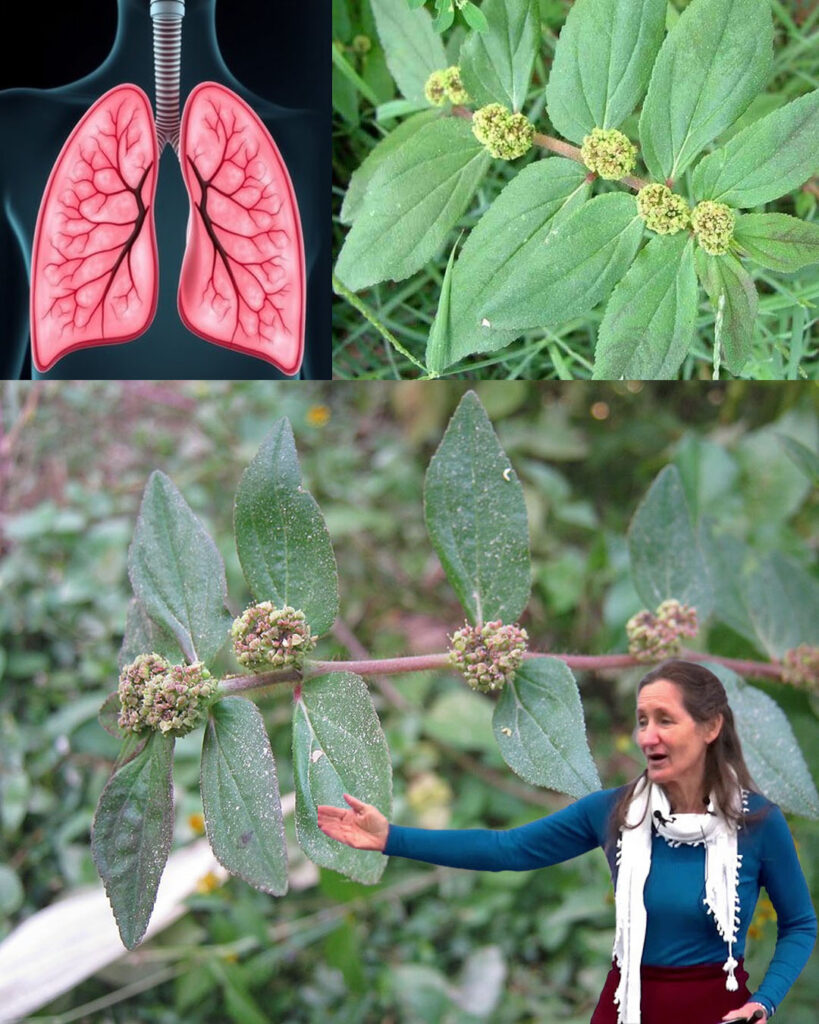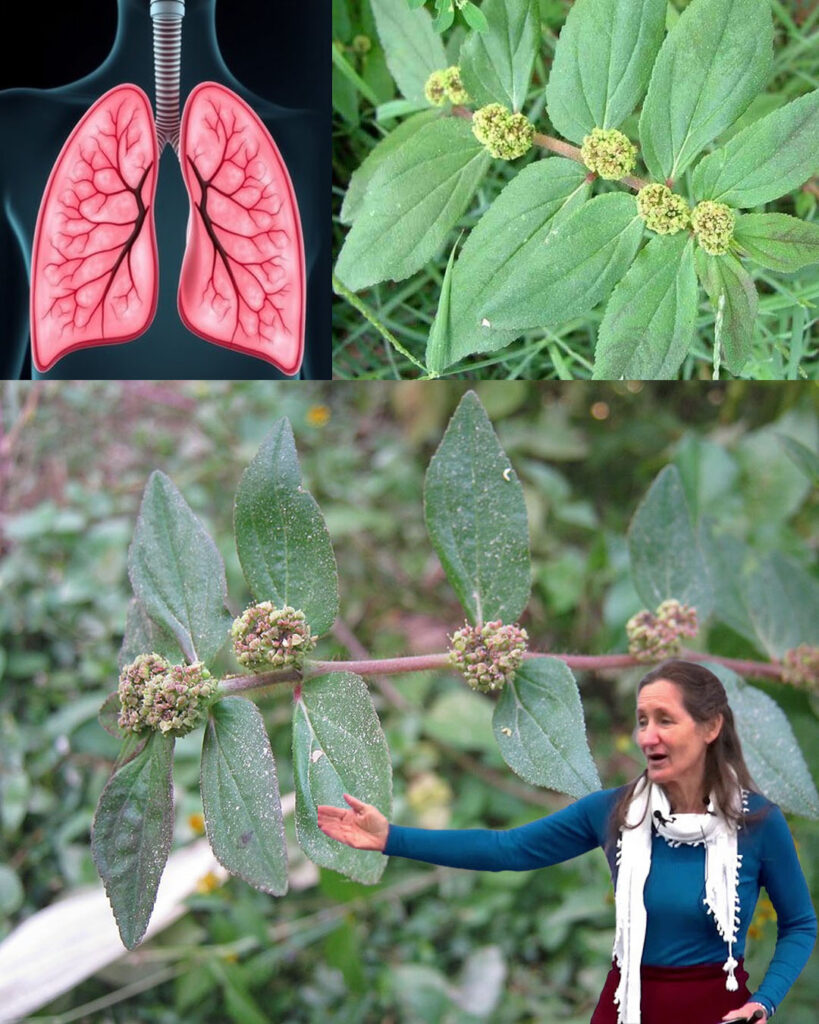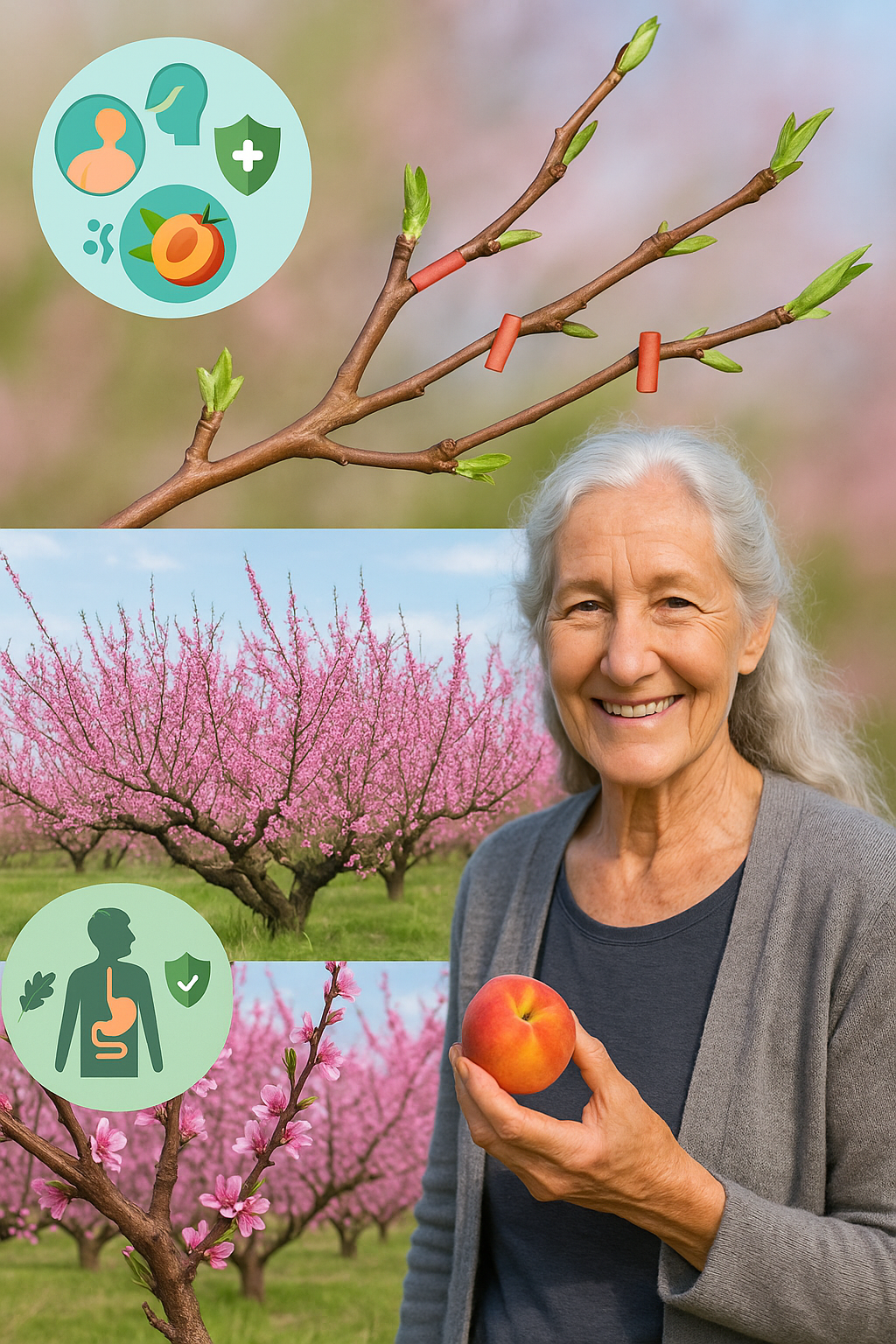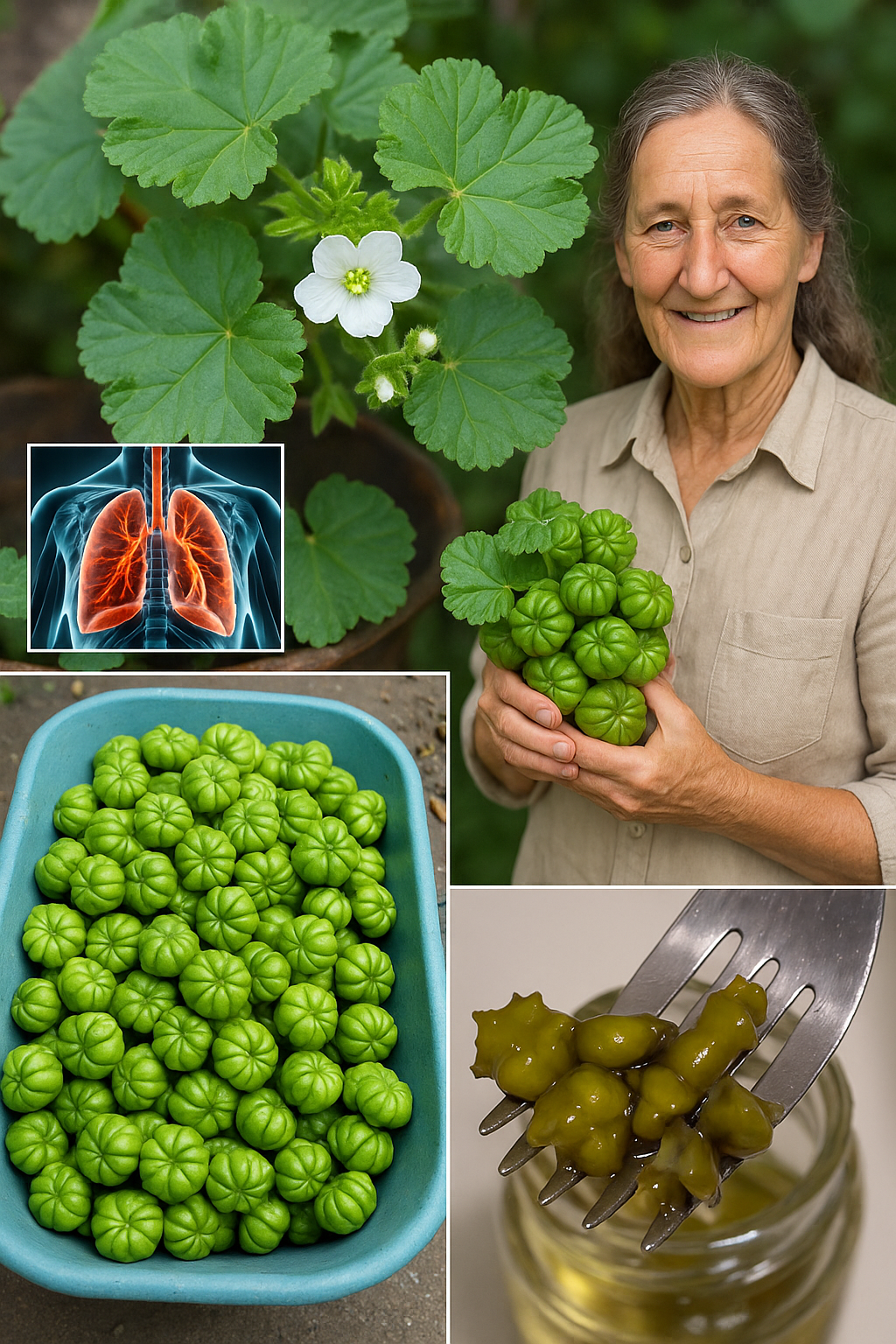In the wild corners of tropical and subtropical regions, you may come across a low-growing herb with small fuzzy leaves and milky sap — often overlooked, yet deeply respected in traditional medicine. This is Euphorbia Hirta, also known as asthma weed, snakeweed, or pill-bearing spurge, a plant long celebrated for its natural therapeutic properties.
Used for generations in Asian, African, and Latin American cultures, Euphorbia Hirta is valued for its ability to soothe the lungs, ease inflammation, and support digestive and skin health. But this herb is not without its cautions. It contains potent compounds that require careful dosing and professional oversight.
If you’re exploring herbal remedies and looking to boost your wellness naturally, here’s your complete guide to Euphorbia Hirta — including 30 researched benefits, safe preparation methods, and essential precautions.

🌬️ 1–10: Respiratory and Immune Support
- Eases Asthma Symptoms
Traditionally brewed into tea to open airways and calm breathing difficulties. - Relieves Cough
Warm leaf tea soothes dry or persistent coughs with gentle expectorant action. - Soothes Bronchitis
Anti-inflammatory properties help reduce chest tightness and bronchial irritation. - Reduces Fever
Applied as a warm compress, it may help cool the body during fevers. - Boosts Immunity
Low-dose tea may help strengthen the immune system against common infections. - Manages Cold and Flu Symptoms
Its antimicrobial action supports faster recovery when taken early. - Combats Respiratory Infections
Helps the body fight bacterial and viral invaders in the lungs and throat. - Opens Sinuses
Warm decoction inhalations may help reduce sinus inflammation. - Calms Seasonal Allergies
Used in folk medicine to soothe respiratory allergic responses. - Supports Lung Detox
Promotes clear breathing by assisting the body’s natural respiratory cleansing.
🦠 11–20: Digestive, Antimicrobial, and Hormonal Benefits
- Relieves Diarrhea
A mild anti-diarrheal when used in small quantities under supervision. - Treats Dysentery
Traditionally used to fight intestinal infections and reduce cramping. - Aids Digestion
Warm tea helps reduce bloating, gas, and indigestion after meals. - Soothes Stomach Ulcers
Protective mucilaginous compounds may help coat and heal the gut lining. - Kills Intestinal Parasites
An old folk remedy for treating worms and intestinal invaders. - Supports Urinary Tract Health
Diuretic properties may help flush infections and reduce discomfort. - Regulates Menstrual Flow
Used to ease heavy or irregular periods by gently balancing hormone levels. - Relieves Menstrual Cramps
Tea or compresses help soothe pelvic pain and uterine tension. - Boosts Lactation (Under Supervision)
In traditional practices, it was used to enhance milk production in nursing mothers. - Balances Hormones
A tonic effect may help support hormonal equilibrium in women.
💆 21–30: Skin, Circulation, Mental Health, and Pain Relief
- Heals Minor Wounds
Crushed leaves act as a soothing poultice for cuts and scratches. - Treats Skin Infections
Its antibacterial and antifungal action helps cleanse infected skin. - Reduces Acne and Inflammation
Diluted leaf juice applied topically may calm redness and kill bacteria. - Manages Eczema and Dermatitis
Soothing leaf poultices relieve itchiness and promote skin repair. - Combats Dandruff
A herbal rinse can reduce scalp irritation and flaking. - Relieves Toothache
Leaf juice has a numbing and antimicrobial effect when applied directly. - Soothes Mouth Ulcers
Rinsing with a weak decoction may speed up healing of sores in the mouth. - Improves Eye Health (Highly Diluted)
In traditional medicine, diluted juice was used to treat eye infections — extreme caution required. - Reduces Joint Pain
Applied externally, Euphorbia Hirta may ease arthritis and joint swelling. - Supports Detox and Circulation
Its diuretic and circulatory properties assist in toxin removal and blood flow.

🫖 How to Use Euphorbia Hirta Safely
Tea Preparation
– Use 1–2 grams of dried leaves in 1 cup of boiling water
– Steep for 5–10 minutes, strain, and drink
– Limit intake to 1–2 cups per day for no more than 7 days without professional guidance
Topical Application
– Crush fresh leaves into a paste
– Apply gently to wounds, acne, or inflamed skin
– Leave on for 20–30 minutes, rinse thoroughly
– Avoid use on broken skin without medical approval
Compress or Bath
– Boil leaves and allow to cool
– Soak a cloth in the decoction and apply to sore areas
– Can also be added to bath water to soothe large areas of inflammation
⚠️ Safety, Warnings, and Who Should Avoid
Euphorbia Hirta contains latex and alkaloids that can be irritating or toxic in large amounts. Respect dosage limits, and always start with a small test dose when trying for the first time.
🚫 Avoid if you are:
– Pregnant or breastfeeding
– Under 12 years old
– Experiencing liver or kidney issues
– Taking medications for asthma, heart, or hormone regulation
⚠️ Possible Side Effects
– Nausea or vomiting from excessive use
– Diarrhea or cramping if overused
– Skin irritation from direct application (especially on sensitive skin)
– Allergic reactions in some individuals
🌿 Final Thoughts: Potent but Not for Everyone
Euphorbia Hirta is a potent herbal remedy with a wide array of benefits — but like many traditional plants, it walks a fine line between helpful and harmful. It offers powerful support for lungs, digestion, skin, and inflammation — but it must be approached with caution, respect, and professional advice.
If you’re seeking natural ways to manage respiratory health, digestive issues, or skin flare-ups, Euphorbia Hirta might deserve a place in your herbal toolkit — as long as you use it wisely and sparingly.
Harness its healing with knowledge. Respect its power with care.


